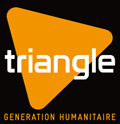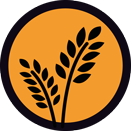North Korea (the Democratic People's Republic of Korea), which emerged from the partition of Korea in 1948, has since lived under the economic and political regime of the "Juche": a willing based on the principle of “political independence, economic self-sufficiency and military autonomy”.
In the 1990s, the from the collapse of the the Soviet bloc on which much of the imports were based, combined with terrible climatic conditions (floods and drought), deforestation, an excessive use of fertilisers and pesticides reducing the country's limited surfaces of arable land (only 18%) plunged the country into a famine that caused more than a million victims.
In 1995, the Government was forced to seek foreign assistance, which continued until 2006, when development cooperation replaced emergency humanitarian aid. Since then, only five international NGOs - including Triangle Génération Humanitaire - have been allowed to run humanitarian and development programmes with the permanent presence of expatriate staff.
The nutritional situation of North Koreans is still precarious and alarming. Lack of food and poor nutritional quality of food are a real risk for the population, especially children and the elderly. 45% of the inhabitants need food assistance.¹
2018 was a difficult year for the North Korean agriculture. High temperatures between mid-July and mid-August were followed by heavy rains and floods in the country's most productive areas at a key time in crop development. Typhoon Soulik caused heavy rainfall in the eastern part of the country. Rice, cereal, potato and maize harvests were impacted, and some infrastructure needed to be rehabilitated, leading to a slowdown in production. Imports remained far too low to face this situation.
If it is no longer a question of famine today the food crises remains endemic. The country lacks modern agricultural equipment, quality seeds and inputs that would facilitate production. 140,000 children under 5 years of age suffer from severe malnutrition and are at an unusually high risk of infection and mortality. 1 in 5 children are chronically malnourished, causing health problems that cannot be treated, and one-third of children aged 6 to 23 months do not receive enough food². Diarrhoea is one of the two leading causes of death in children under 5 years of age.
The population suffers from health problems due to food insecurity, poor access to health services and lack of access to water and adequate sanitation infrastructure.
International NGOs require derogations to bypass the international sanctions imposed on the country. The delays in obtaining these derogations limit the importation of the necessary equipment and considerably slow down the interventions.
Since 2000, TGH has been active in various sectors: agricultural development/food security (rehabilitation of polders, support to cooperative farms), rehabilitation of drinking water supply systems, improvement of sanitary infrastructure, distribution of food aid in children institutions, improvement of the living conditions in retirement homes, support for an association promoting the rights of the elderly, etc.
In 2018, TGH's work focused mainly on two main objectives: the protection of vulnerable people, especially the elderly (access to care and services), and the improvement of food security, with particular attention to children.
Since 2020, TGH's activities had to be temporarily stopped due to the COVID-19 outbreak and the consequent closure of DPRK's borders. Activities will resume once the borders reopen.
Improving the nutritional value of children's meals by integrating animal protein and diversifying vegetable production
TGH continues its intervention in the integrated fish farming systems initiated in the early 2010's, by supporting the rehabilitation of infrastructure and by providing equipment and training in aquaculture techniques.
In 2018, TGH prioritised the sharing of good aquaculture practices and their dissemination beyond experimental farms. The organisation of study tours between Europe, Vietnam and the DPRK, and the organisation of training sessions and workshops with fish farms and the Bureau of Aquaculture help optimise production and distribution channels as well as strengthen technical and institutional capacities and networks of research in aquaculture.
TGH is also working on improving food diversity through various actions on vegetable production (distribution of agricultural equipment and inputs, construction of greenhouses and promotion of market gardening), and on post-production (work on conservation, hygiene, storage and distribution methods).
Supporting civil society for better care for the elderly
Since 2004, TGH has been supporting the Korean Federation for the Care of the Aged (KFCA) to improve its organisational capacity and expertise in terms of care and services for the elderly.
Trainers’ training and awareness sessions on national and international legislation are provided to the staff.
In 2018, three pilot day care centres (Seniors’ Homes) began their activities, providing a place for socialisation, activities and care and support services for the elderly.
¹March 2019, DPR Korea – Needs and Priorities, UN DPRK Country Team. Available online: https://reliefweb.int/sites/reliefweb.int/files/resources/DPRK%20NP%202019%20Final.pdf
²March 2019, DPR Korea – Needs and Priorities, UN DPRK Country Team. Available online: https://reliefweb.int/sites/reliefweb.int/files/resources/DPRK%20NP%202019%20Final.pdf.

